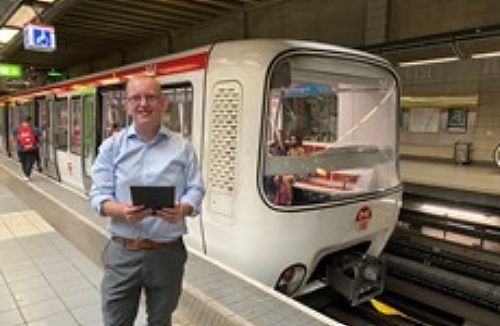
Nantwich disability consultancy Direct Access has expanded its rail accessibility consultancy work into France with a pilot programme working with rail operator Keolis in Lyon.
It will carry out audits of key interchange stations including SNCF intercity and TER regional trains at Gare de Vaise, buses and the metro at Bellecour and Vauix-en-Velin’s Rhone express trams to Lyon’s Saint-Exupery airport.
The Direct Access team is auditing all entrances, arrival points, onboarding and wayfinding systems.
Detailed recommendations for access improvements will form part of a report to be submitted in June.
Direct Access works across several industry sectors, but transportation infrastructure is one of its biggest sectors with Avanit West Coast, Trans Pennine Express and Network Rail among clients.
Operations Director Steve Dering, who himself is profoundly deaf, said: “Disabled people travel less and undertake travel for different purposes compared with people without disabilities.
“There are key differences in the experiences of disabled people in relation to different modes of transport, and how some methods are more frequently used than others.
“Understanding the challenges and barriers that disabled people face in accessing transport facilities enables services to be developed or changed that will enhance customer journeys.
“Direct Access and Keolis working together are identifying these barriers and developing solutions here in Lyon.
“Solutions range from identifying where arm rests could be installed at seating for people with reduced mobility to increasing the colour contrast for door frames to make them easier to identify for passengers who are blind or partially sighted.”
Tags: audit, Direct Access, France, railLorem Ipsum is simply dummy text of the printing and typesetting industry. Lorem Ipsum has been the industry’s standard dummy text ever since the 1500s, when an unknown printer took a galley of type and scrambled it to make a type specimen book. It has survived not only five centuries, but also the leap into electronic typesetting, remaining essentially unchanged. It was popularised in the 1960s with the release of Letraset sheets containing Lorem Ipsum passages, and more recently with desktop publishing software like Aldus PageMaker including versions of Lorem Ipsum.
Contribute MonthlyContribute Once
Recent Comments